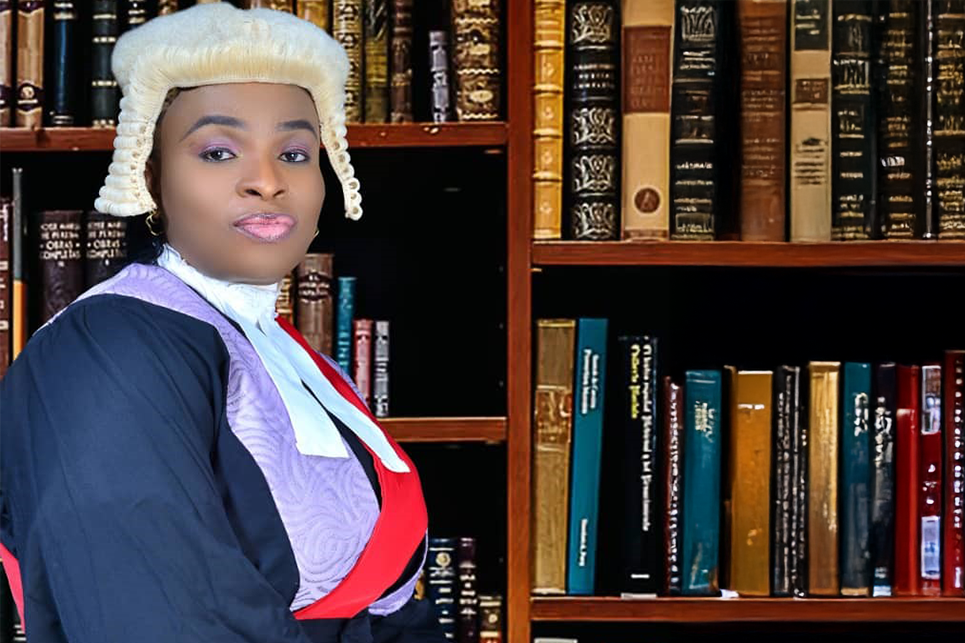Cleaning Windows: Judicial Transparency in Belize
By Judge Sonya Young
Justice Sonya Young is a Supreme Court Justice for the state of Belize. She previously served as the Chief Magistrate in Saint Vincent and the Grenadines. Justice Young recently shared her views on promoting transparency in the judiciary with UNODC as part of the Organization's on-going work to promote judicial integrity. All opinions expressed in this piece are solely those of the author as an external expert and do not necessarily reflect the official position of UNODC.
______________________________
Your childhood may not have had a Caribbean flavour as mine did, but I am certain that whichever region of the world you hail from, you are familiar with the tiresome task of window cleaning. As laborious and time-consuming as it often was, however, my own small community understood its value. By removing the dirty build-up, we allowed the warm and illuminating sunlight to shine through, and our homes were brighter and happier for it. Cleaning those windows also gave a clearer perspective on all that transpired outside; we saw our neighbours' needs, and they saw ours. We all benefitted from the selfless offer of assistance.
We were then our brother's keeper, and the apparent lack of privacy caused little, if any, concern. Then came progress; money to purchase window curtains that too quickly yielded their cheerful, lacy aspect for a firmer "black out" countenance and blinds (how apt). Privacy sensitivities cleared the path for secrecy and distrust; neighbours became nosey and sometimes unrecognizable as we each huddled in the safety of our own opaque chambers, afraid to ask for, or to accept, the help that had previously been the norm.
Thankfully, openness and honesty have seen a recent revival, or perhaps experienced a renewed recognition. Transparency is present in the free-flow architecture of our modern living spaces, where walls are few, curtains are passé, and blinds have become archaic (how apt). While business experts hail it as a fundamental virtue of any successful enterprise, the media make clarion calls for freedom of information, especially as it relates to the government and political issues, insisting on the world's right to know and to understand. As for the universal judicial system, it has set this freedom as a bastion which weaves its way through the guarantee of a fair and public hearing by an independent, ethical, and impartial tribunal. It is the cornerstone of the Bangalore Principles of Judicial Conduct. In Belize, transparency is embedded in the Constitution (1981) and forms an integral part of the Code of Judicial Conduct and Etiquette (2003).
As a judge, I think of window cleaning whenever the issue of transparency arises; it gives me perspective. Granted, the mere sound of the word sometimes provokes fear or nervousness. Perhaps we feel that our own privacy would be so invaded that we could no longer enjoy it. Or perhaps being transparent demands a vulnerability which we would be terrified to show. But as judges, we ask society to trust that we will make sound judgments. Judgments which many can neither read nor understand, and which are given by persons whose existence they discover only when the appointment makes the news. Once appointed, we so often fail to appreciate society's fear of an institution which, for far too long, has tried to foster respect through strange rituals and aloofness; an institution whose members stand firmly on their 'independence,' sometimes unwilling to accept that each and every one of us has dependencies, for no man is an island. Some even say we are disengaged, almost strangers to our society.
Fortunately, the importance of increasing public trust in the judiciary through integrity is a concept the Chief Justice of Belize understands, and which a receptive judiciary has willingly embraced. Striving to faithfully provide a service based on trust, the judiciary has made itself more accessible to court users through a variety of measures. These include the establishment of a dedicated website with the immediate and public posting of judgments which speak to the intended audience, the users; the introduction of gender protocols; the implementation of modern civil and criminal procedure rules, with an emphasis on the pro se litigant (or unrepresented defendant); and the promotion of court-connected mediation and arbitration, and outreach programmes such as the Court and You for school-age children.
The Belize Judiciary has also concentrated its efforts on education. It focuses on issues that impact modern society by engaging judges and judicial staff in training in social media, gender sensitization, human trafficking, and refugeeism, wellness and time and resource management. It is a participant in the Judicial Reform and Institutional Strengthening (JURIST) Project's Public Education and Engagement Consultancy, aimed at the development of a regional plan (with an emphasis on vulnerable communities) for the five participating judiciaries. Moreover, it is a proud pilot site for the implementation of the United Nations Office on Drugs and Crime (UNODC) Judicial Ethics Training Tools, to which the entire judiciary in Belize will be exposed by March 2019.
The Belizean judiciary has earnestly started cleaning its windows, removing much of the dressings and making it easier to accept challenges and admit mistakes. It invites appropriate scrutiny and accepts both rightful criticism and merited praise, while acknowledging that there can only be benefits to being held accountable, and that transparency is a virtue which finds no companion in corruption. We have begun to look intently through those windows and to recognize the people looking in. Undoubtedly, there is still a long way to go, but the longest walk begins with a single motivated step.


